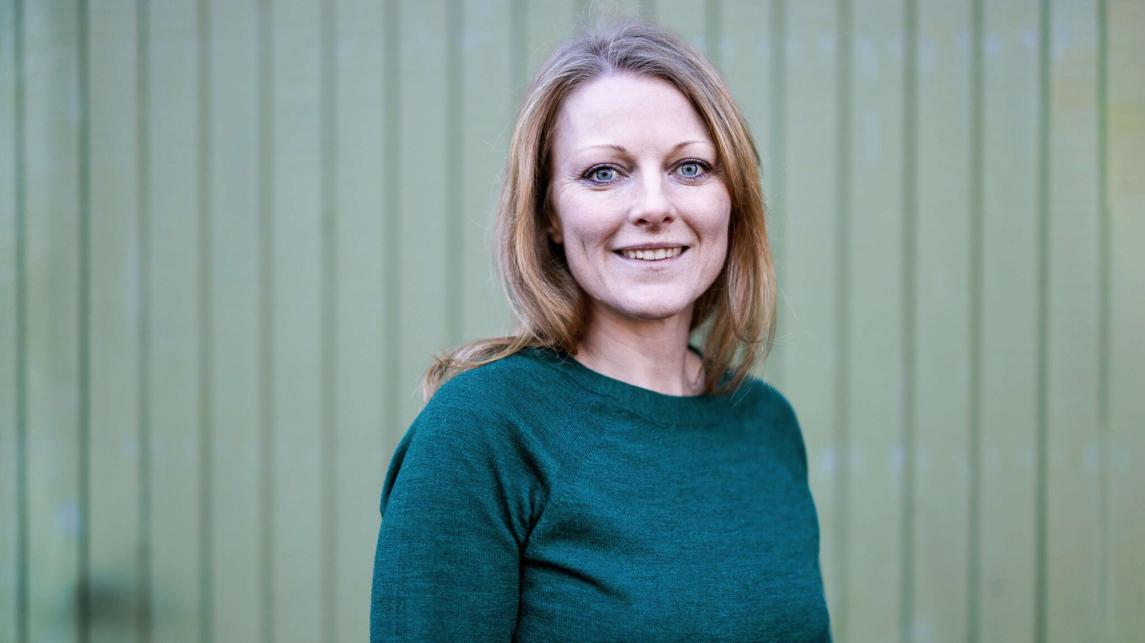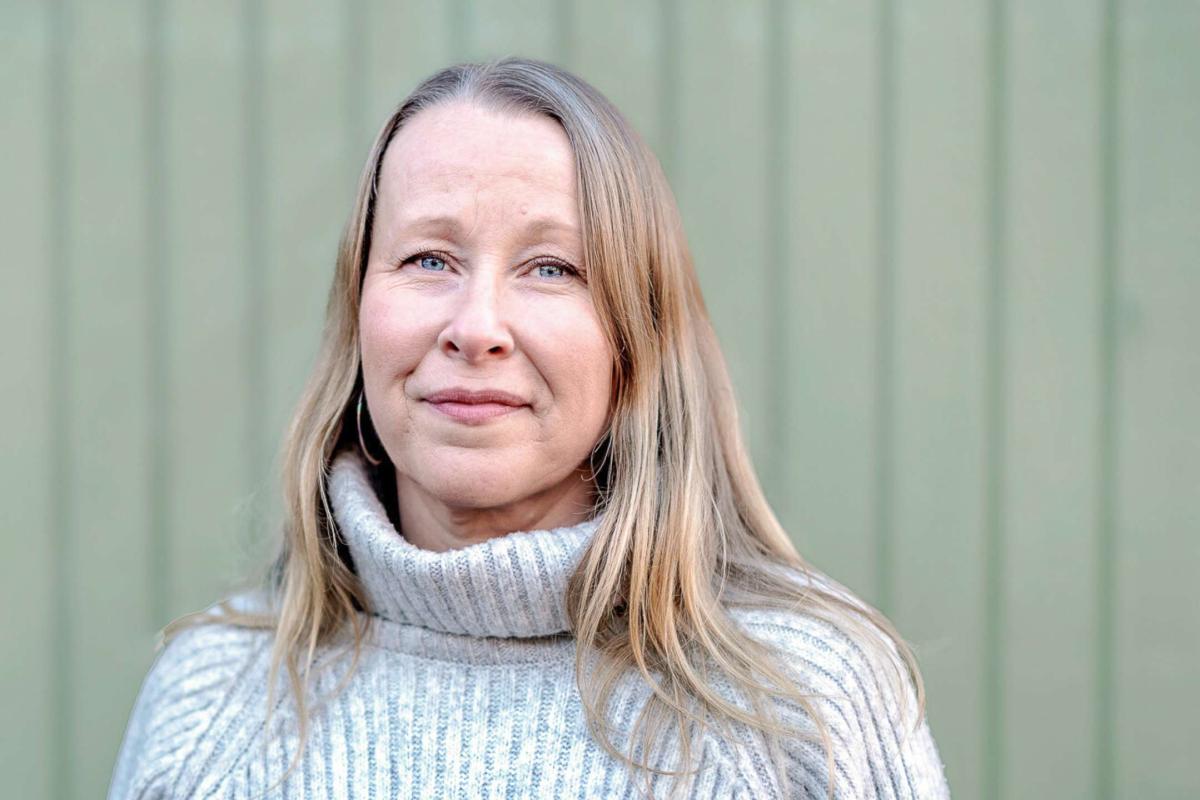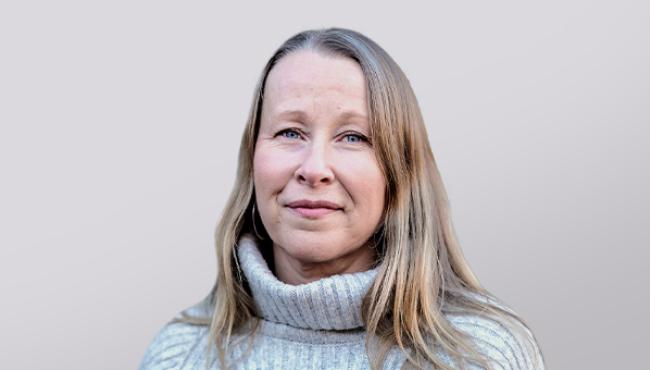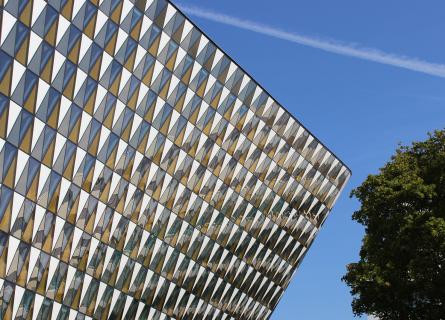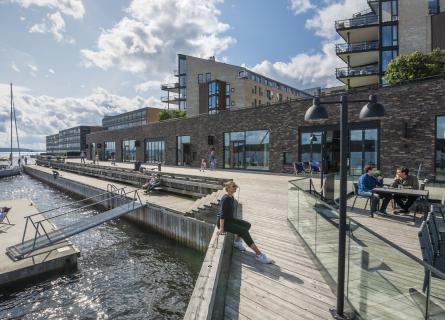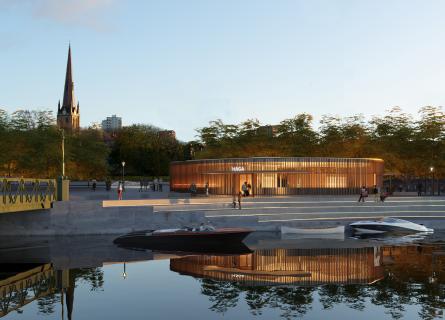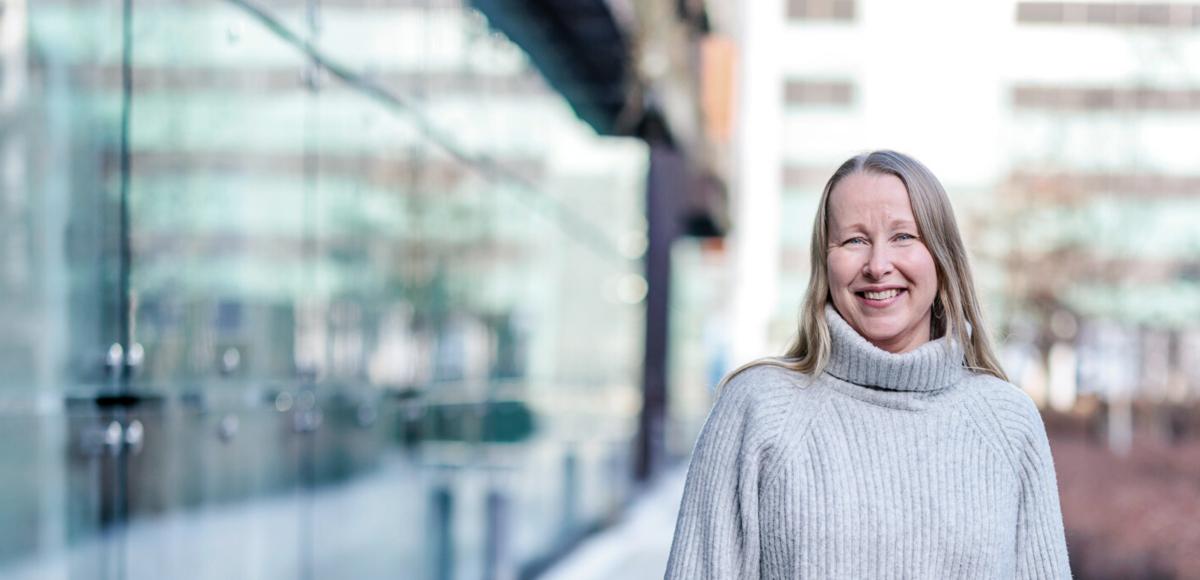
Meet AFRY's Sustainable Urban Development Expert
Maja Manner: Collaboration and knowledge sharing are integral to achieving sustainable urban development
Urban areas play a critical role in climate adaptation, as they account for 70% of climate emissions and 65% of global energy consumption. Maja Manner is an expert in sustainable urban development, having worked on various aspects of urban sustainability for many years. At AFRY, she leads a project focused on climate neutrality and climate adaptation in Swedish cities.
“My journey began through my involvement in various non-profit organisations, particularly those concerning environmental and human rights issues. During this period, I became aware of significant conflicts between human rights and environmental considerations, particularly in the context of urban development. Over 20 years ago, the concept of "sustainable urban development" was barely known, and it was challenging to find a place in the field as a humanist. Despite encountering resistance and being told that working in the field without an engineering or architecture background was impossible, I took matters into my own hands and started my own company - it turned out to be a success.”
Extensive knowledge and expertise to comprehend the requirements of our clients
“Through my work as a consultant in sustainable urban development, I learned about the challenges of cities and how different administrations and budgets could affect cooperation. This led me to management consulting, idea generation, and fundraising. In 2017, I joined AFRY. I was genuinely attracted to the Making Future strategy, and I believe in the magic that happens when humanists and engineers work together. AFRY made this collaboration possible, and with the new brand launch in 2019 we could further strengthen our focus on sustainability.
What makes AFRY strong in sustainable urban development and climate-neutral cities is that, in addition to our wide internal expertise, we have a mix of clients that provide us with insights from different perspectives. Some need help with smaller projects while others face more complex challenges. This varied experience allows us to have a better overview of the different processes required. Balancing between the large and the small is crucial to understand and meet the needs of cities.”
Sustainability issues have been a widely discussed topic for a long time now. What do you think needs improvement to manage these challenges more effectively?
“Over the past two decades, much work has been done in many parts of the industry, but the challenge is understanding how everything is interconnected. The 2030 Agenda, the global sustainability goals and action plans that all UN member countries have signed to transition towards a sustainable society, emphasizes the fact that all issues are interconnected and have a synergistic effect.
However, this is difficult due to the segmentation of organizations and their budgets. We need to work more as a cross-functional task force and create clear goals to improve collaboration. I am noticing this increasingly, particularly in the interactions between the public and private sectors.
What are the main sustainability challenges for cities in Sweden?
"Energy and transportation are two big challenges for Swedish cities. Collaborations between energy companies and property owners are crucial to achieve results. When it comes to transportation, especially in cities that serve as heavier transportation and logistics hubs, specific efforts are required.
Making all modes of transportation sustainable, including new technologies like drones, is a large and complex issue. There are great opportunities with micro-mobility, electric mobility, electric roads, and collaboration between stakeholders."
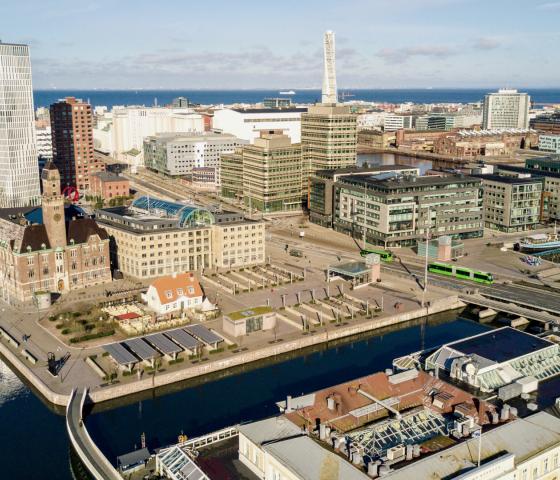
What are your thoughts on the impact of climate change on urban areas?
“Climate adaptation is crucial, and in several cities, there are concerns about heavy rainfall, extreme heat, and rising sea levels. There is a need for greenery and various systems to manage water and heat. In cities, consideration must also be given to existing buildings and ensuring they are sustainable in the future. Climate change affects the entire ecosystem, requiring operational measures from cities and regions.
There is immense stress over climate change and its impact, as more and more cities are seeing the direct consequences and costs of these changes. Working with climate adaptation and preventive measures is becoming increasingly important in dealing with what we are facing.
Many cities have taken on the leadership role to meet these changes and are actively working towards climate neutrality and preventive work with climate adaptation.”
Are there some good examples of collaboration for sustainable urban development?
“There are several commendable examples, although unfortunately, they are still far from common. Lokal Färdplan Malmö (Local Roadmap Malmö), also known as LFM30, stands out when it comes to collaboration for climate neutrality in the building, construction and real estate management sectors, with over 200 engaged members. It is a unique initiative, which has had a ripple effect and contributes to a greater commitment to cooperation and knowledge sharing in the industry."
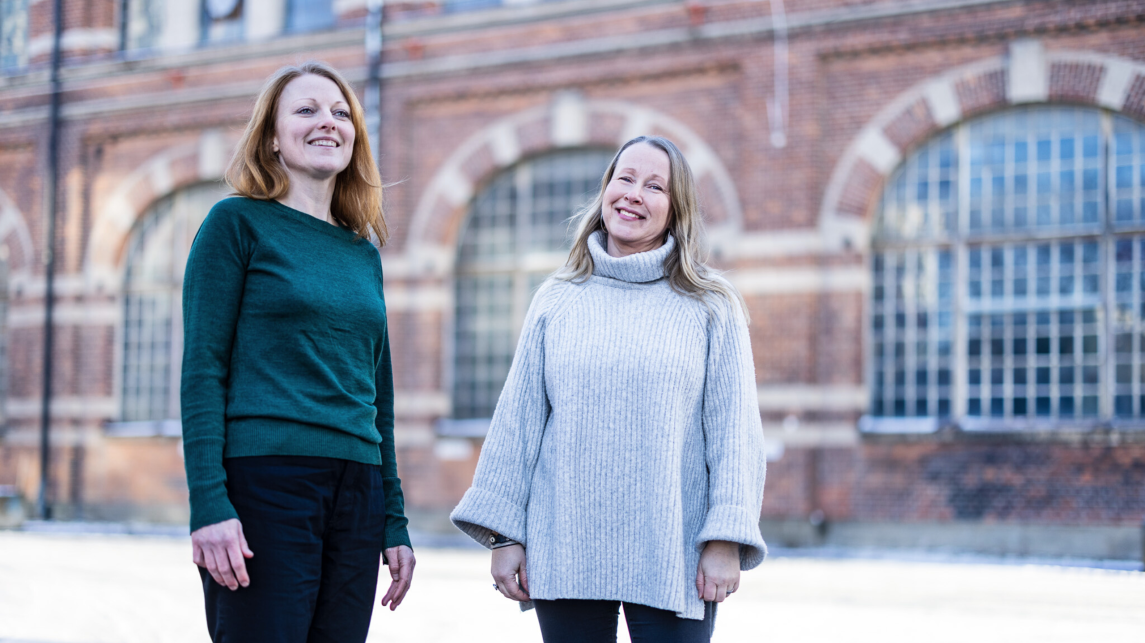
"Malmö is home to various pilot projects focused on social sustainability, with dedicated efforts concentrated in these areas. For example, BID Malmö (Business Improvement District), which was about transforming an area that the police had identified as unsafe; Sofielund. Property owners, the municipality, police, civil society and more, joined together and formed an association to work with hospitality, ambassadorship, or simple things like keeping the streets clean and taking responsibility for the area. AFRY was involved in helping young people start businesses and implement ideas, connecting them with companies and the city of Malmö. And it worked!
The project was launched in 2014, and within ten years, the police removed the label on Sofielund as an insecure area. And the initiative also won the European Crime Prevention Award (ECPA), a European prize for the best crime prevention measure!”
What role do you see AFRY playing in sustainable urban development?
“We have an important role in accelerating the transition together with our customers, but we also have an educational role and the opportunity to influence change by leading the transition that the industry needs. Through more collaborations, and by being part of shaping the future, we will be better equipped to meet the significant challenges in sustainable urban development and contribute to a more sustainable future.”
